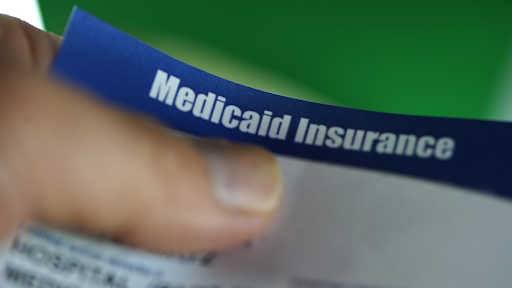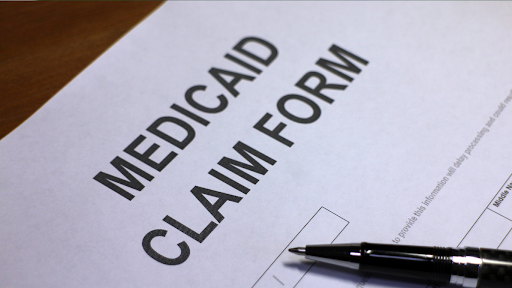Urgent care centers have become an increasingly popular option for individuals seeking immediate medical attention without the long wait times typically associated with emergency rooms. However, one of the most common questions that arises is whether these facilities accept Medicaid. Understanding the nuances of Medicaid coverage can be crucial for patients looking for accessible healthcare options.
 Understanding Medicaid
Understanding Medicaid
Medicaid is a state and federal program designed to provide health coverage for low-income individuals and families. Each state administers its own Medicaid program with varying rules, benefits, and eligibility requirements. This means that the extent of coverage can differ significantly from one state to another. For instance, while some states may offer comprehensive dental and vision services, others might have more limited offerings, which can impact the overall health outcomes for beneficiaries.
For many, Medicaid is a lifeline that offers essential services, including hospital visits, doctor appointments, and preventive care. However, the specifics of what is covered can be complex, particularly when it comes to urgent care services. Understanding these nuances is crucial, as it can influence how individuals navigate their healthcare options and make informed decisions about where to seek treatment, especially in urgent situations where timely care is critical.
Eligibility for Medicaid
Eligibility for Medicaid typically depends on income, family size, and other factors such as age or disability status. In many states, individuals with incomes at or below 138% of the federal poverty level may qualify. This includes children, pregnant women, and some adults without dependent children. It's important for potential beneficiaries to check their state's Medicaid guidelines to understand their eligibility. Additionally, some states have expanded Medicaid under the Affordable Care Act, allowing more individuals to access this vital resource, which has led to increased enrollment and improved health outcomes in those areas.
Benefits Covered by Medicaid
Medicaid covers a wide range of health services, including routine check-ups, immunizations, and emergency services. However, the coverage for urgent care services can vary. Some states include urgent care visits under their Medicaid plans, while others may have restrictions or require prior authorization. This variability can create confusion for patients who may not be aware of the specific rules governing their coverage, leading to unexpected costs or delays in receiving care.
Additionally, Medicaid may cover specific urgent care services, such as treatment for minor injuries, infections, and illnesses. However, more complex procedures may not be included, making it essential for patients to verify their coverage before seeking care. Furthermore, the availability of urgent care facilities can also differ by region, with some areas having limited access to these services, which can further complicate the healthcare landscape for Medicaid beneficiaries. Understanding these dynamics is vital for individuals relying on Medicaid to ensure they receive the appropriate care when they need it most.
Urgent Care Centers and Medicaid
Urgent care centers are designed to provide immediate medical attention for non-life-threatening conditions. They are often more accessible than traditional healthcare settings, offering extended hours and walk-in services. However, the acceptance of Medicaid at these facilities can vary widely.
 Many urgent care centers do accept Medicaid, but it is crucial for patients to confirm this before visiting. Some facilities may have specific agreements with Medicaid or may only accept certain plans. Therefore, contacting the urgent care center directly or checking their website for information on accepted insurance can save time and avoid unexpected costs.
Many urgent care centers do accept Medicaid, but it is crucial for patients to confirm this before visiting. Some facilities may have specific agreements with Medicaid or may only accept certain plans. Therefore, contacting the urgent care center directly or checking their website for information on accepted insurance can save time and avoid unexpected costs.
Finding Urgent Care Centers that Accept Medicaid
Patients can utilize several resources to find urgent care centers that accept Medicaid. The Medicaid website for their state often provides a list of participating providers. Additionally, many urgent care chains have online tools to help patients determine if they accept Medicaid.
Another option is to contact local health departments or community health organizations, which can often provide recommendations for urgent care centers that accept Medicaid. To ensure a smooth process, it’s advisable to have your Medicaid card handy when calling or visiting.
What to Expect at an Urgent Care Visit
Patients can expect a streamlined process when visiting an urgent care center. Typically, they will check in, provide their insurance information, and wait for their turn to see a healthcare provider. The visit usually involves a brief consultation, examination, and any necessary diagnostic tests.
For those with Medicaid, it’s important to bring any required documentation, such as a Medicaid card and identification. This can help expedite the check-in process and ensure that the visit is covered under their plan. Additionally, patients may encounter a variety of healthcare professionals during their visit, including nurse practitioners and physician assistants, who are trained to handle a wide array of urgent medical issues. This diverse team can provide comprehensive care, from treating minor injuries to managing acute illnesses, ensuring that patients receive the attention they need promptly.
Moreover, many urgent care centers are equipped with on-site laboratories and imaging services, such as X-rays, which can facilitate quicker diagnoses and treatment plans. This capability is particularly beneficial for patients who may otherwise face delays in receiving care at a hospital or traditional doctor's office. Understanding these aspects can help patients feel more prepared and informed about their visit, making the experience less daunting and more efficient.
Telehealth Services and Medicaid
In recent years, telehealth has emerged as a valuable option for patients seeking medical care. This service allows individuals to consult with healthcare providers remotely, often through video calls or phone consultations. Telehealth can be particularly beneficial for those who may have difficulty accessing urgent care facilities. It eliminates the need for lengthy travel times, which can be especially challenging for individuals living in rural areas or those with limited mobility.
Many Medicaid programs have expanded their coverage to include telehealth services, recognizing the need for accessible healthcare options. This expansion has made it easier for patients to receive care for non-emergency issues without the need to travel to a physical location. Furthermore, the COVID-19 pandemic has accelerated this shift, as more providers and patients have embraced virtual consultations as a safe alternative to in-person visits.
Doctronic.ai: A Solution for Telehealth
For those looking to utilize telehealth services, Doctronic.ai offers a user-friendly platform that connects patients with healthcare providers. This service is particularly advantageous for Medicaid recipients, as it often aligns with state Medicaid programs that cover telehealth consultations. The platform is designed to be intuitive, ensuring that even those who are not tech-savvy can navigate it with ease.
Through Doctronic.ai, patients can schedule appointments, consult with providers, and receive follow-up care, all from the comfort of their homes. This is especially beneficial for individuals who may face transportation challenges or have mobility issues. Additionally, the platform provides a secure environment for sharing sensitive health information, giving patients peace of mind while they seek the care they need.
Benefits of Telehealth for Medicaid Recipients
Telehealth provides numerous benefits for Medicaid recipients. First and foremost, it increases access to healthcare services, allowing patients to receive timely care without the barriers of travel. Additionally, telehealth can reduce wait times, as patients can often schedule appointments at their convenience. This flexibility is crucial for those who may have unpredictable schedules or caregiving responsibilities.
Moreover, telehealth services can be particularly useful for managing chronic conditions, mental health issues, and follow-up care. By utilizing platforms like Doctronic.ai, patients can maintain regular contact with their healthcare providers, ensuring continuity of care. This ongoing relationship can lead to better health outcomes, as providers can monitor patients' progress and make necessary adjustments to treatment plans in real-time. Furthermore, telehealth can facilitate access to specialists who may not be available locally, broadening the scope of care for Medicaid recipients.
Challenges and Considerations
While urgent care centers and telehealth services offer valuable options for Medicaid recipients, there are challenges and considerations to keep in mind. Understanding the limitations of Medicaid coverage is essential for avoiding unexpected costs.
For instance, while many urgent care centers accept Medicaid, some may not cover specific services or may require prior authorization for certain treatments. Patients should be proactive in understanding their coverage and asking questions before seeking care.
Potential Limitations of Urgent Care Coverage
One primary limitation of Medicaid coverage for urgent care is that not all services may be covered. For example, some urgent care centers may not accept Medicaid for specific procedures or treatments. Additionally, patients may encounter limitations on the number of visits covered within a certain timeframe.
To navigate these limitations, it is advisable for patients to review their Medicaid plan details and communicate with their urgent care provider about any concerns regarding coverage. This proactive approach can help prevent misunderstandings and financial surprises. Furthermore, patients should be aware that certain urgent care centers may have different policies regarding co-pays and out-of-pocket expenses, which can vary significantly from one facility to another. Therefore, it is beneficial to inquire about these details upfront to ensure that the chosen provider aligns with the patient’s financial situation.
Staying Informed About Changes
Healthcare policies and Medicaid coverage can change frequently, so staying informed is crucial. Patients should regularly check for updates regarding their state’s Medicaid program and any changes to urgent care coverage.
Additionally, engaging with local health organizations or advocacy groups can provide valuable information and resources for navigating Medicaid and urgent care options. These organizations often offer workshops, informational sessions, and one-on-one assistance to help patients understand their healthcare choices. It can be particularly useful for patients to connect with peers who have similar experiences, as shared insights can illuminate potential pitfalls and effective strategies for managing their healthcare needs. Moreover, many states provide online portals where Medicaid recipients can access personalized information about their coverage, including a list of participating urgent care centers and any recent changes to policies that may affect their care.
Experience the Future of Healthcare with Doctronic
In summary, urgent care centers can be a viable option for Medicaid recipients seeking immediate medical attention. While many urgent care facilities do accept Medicaid, it is essential for patients to verify coverage before visiting. Understanding the specifics of Medicaid eligibility and benefits can empower individuals to make informed healthcare decisions.
Moreover, with the rise of telehealth services, options like Doctronic.ai provide additional avenues for accessing care, particularly for those facing barriers to traditional healthcare settings. By staying informed and proactive, Medicaid recipients can navigate their healthcare options effectively, ensuring they receive the care they need when they need it.
As you navigate the complexities of Medicaid and urgent care, remember that Doctronic is here to revolutionize your healthcare experience. With our cutting-edge AI technology, you can receive free AI doctor visits and instant, personalized medical advice anytime, anywhere. Our telehealth video visits offer convenience and affordability, ensuring you get the care you need without the wait. Join over 10 million satisfied users and experience the most modern, personal, and intelligent healthcare solution available. Skip the line. Talk to an AI Doctor Now, for free.



 Understanding Medicaid
Understanding Medicaid Many urgent care centers do accept Medicaid, but it is crucial for patients to confirm this before visiting. Some facilities may have specific agreements with Medicaid or may only accept certain plans. Therefore, contacting the urgent care center directly or checking their website for information on accepted insurance can save time and avoid unexpected costs.
Many urgent care centers do accept Medicaid, but it is crucial for patients to confirm this before visiting. Some facilities may have specific agreements with Medicaid or may only accept certain plans. Therefore, contacting the urgent care center directly or checking their website for information on accepted insurance can save time and avoid unexpected costs.